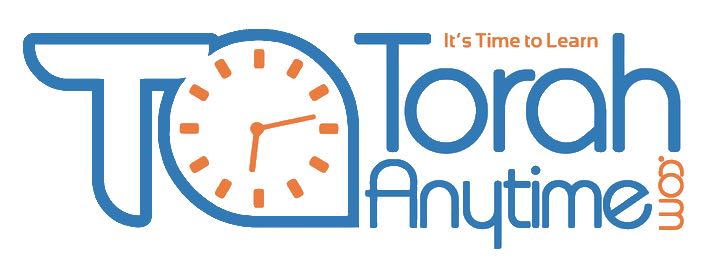Shavous: The Role of Parents & Children
/Shavuos is almost upon us. This means that around the world tens of thousands of nice Jewish families are moving into manic cheesecake mode. One can of course, ask the classic question: how many cheesecakes does any one family need? But that is beside the point. We are dealing here with an essential educational message and it is too important to start nit-picking. We need to ensure that our children remember why we eat dairy on Shavuos. There are many reasons given for this ancient custom, but I'd like to focus on the role of milk to a baby. It sustains him and helps him grow strong. So too the Torah is like that milk - helping us to grow and sustaining us in our physical and spiritual existence.
The opportunity to impress upon our children the importance of learning Torah is always a consideration, but at Shavuos time it becomes the overriding imperative. Without the emphasis on Torah study, Shavuos would be almost indistinguishable from a regular Shabbos. This is because Shavuos is a holiday devoid of all the usual holiday trappings: No shofar, no shaloch manos, no Sukkah or menorah - only the glory of Torah learning. Impressing this most important idea upon our children and ourselvesis the crux of Shavuos.
All Night Long
Cheesecake aside for a moment (only a moment, if you please), the obvious highlight of the holiday is the Tikkun Lail Shavuos, the custom to stay up all night and learn Torah. This custom rectifies the mistake of the Jewish people who had slept the night before the giving of the Torah; they should have stayed awake and waited in excited anticipation.
“Weren’t our ancestors just being responsible by going to sleep?”
Yet when we think about it, the criticism of that holy generation seems a little curious. Don't we remember our mother's advice that she would always give us before an important test? "It's more important to get a good night's sleep, honey, so you can concentrate tomorrow," she would insist in response to our attempts to stay up all night and cram. "Besides, you won't remember it anyway." Weren't our ancestors just being responsible by going to sleep? G-d was going to be giving the most important shiur (lecture) in the history of mankind; could the Jewish people risk drifting off in the middle?
And when you see how the custom is often observed, they certainly seem to have been justified. How much time do people spend learning, and how much of the night shmoozing or eating or "closing their eyes for just a few minutes"? This scarcely intense evening of Torah study then serves as an excuse for many people to sleep away the remainder of holiday away! "After all, I was up all night." Is that any way to excel academically?
“Torah is something Hashem bestows upon us, something that defies the normal educational rules”
Perhaps therein lies the problem. Torah is not an intellectual discipline like math or science; All you need to do is study hard and you will grasp it. Torah, however, is a gift. Three times a day we say during the prayers, "Atta chonain li'adam daas" ("You grant a person knowledge"). We recognize that Torah is something Hashem bestows upon us, something that defies the normal educational rules.
Sun and Moon
The Sages tell us that Yehoshua was the moon to Moshe's sun. What do they mean to tell us? The Moon, as we know, is not as bright as the sun. Why not? After all, the Moon simply reflects the sun's light! Why doesn't it reflect all of it? If you think about it, the only reason the moon is not as bright as the sun is that its ability to reflect is imperfect. If the moon was big enough, it could be as bright as the sun. Yehoshua reflected the light of the Torah that he received from Moshe Rabbeinu well - he was a perfect moon.
I remember the time when my family and I witnessed a lunar eclipse. It's a truly amazing thing to watch the moon apparently vanish before your eyes. As I watched with my children the wonder of Hashem's creation, one of the younger children asked me to explain what was happening. I told her how the moon only had light from the sun and if something blocked the sun's rays from reaching the moon, it wouldn't shine. "Well, what's blocking it?" she asked, hoping that we could remove the obstacle and see the moon once again. "Actually," I explained, "we're the ones who are blocking it. The Earth sometimes gets in between the sun and the moon and keeps the moon from shining." From her perspective, there was something wrong with the moon when the thing that was really wrong was us! We just needed to get out of the way!
It's the same thing with Torah. Hashem says that He is ready to shower us with Torah knowledge. The question, however, is how much of it can we receive? The answer is: only as much as we prepared ourselves to. On Shavuos we complete the weeks of preparation necessary to receive the Torah. Our effectiveness in preparing for Shavuos will determine how much of Hashem's bounty will be showered upon us.
The Jews made a terrible mistake in the desert. They should have stayed up on Shavuos night because Torah isn't simply an intellectual experience - but rather something supernatural. Every moment before the giving of the Torah was precious, because it could still be used to prepare themselves. They should have taken advantage of that last night to make themselves into vessels that were a little more perfect, in order for them to receive that much more Torah. Perhaps the quality of our Torah learning on Shavuos night is not of the highest caliber, but the expression of our desire more than makes up for it.
Shavous Tips
This perhaps is the understanding of the custom. Let us now discuss its application. A father once took his young child to Reb Yaakov Kaminetzky zt"l to tell him with pride that his son had stayed up all Shavuos night. Reb Yaakov was not impressed, to say the least. "Such a young boy needs his sleep. It's not healthy for him to stay up all night."
““Such a young boy needs his sleep. It’s not healthy for him to stay up all night.””
Before Shavuos, ask yourself what can you reasonably expect from your children. For younger children, getting through the seuda may strain their abilities. Pre-Bar Mitzva children can stay up a little longer than usual, but they must be supervised. If there is no organized learning for their age group in your area, then make time to learn with them yourself. If you see that they have reached their limit (and you will probably realize it before they do) send them to bed. Wake them up for the early minyan if they can get up and if not, then wake them up for the regular minyan. Arrange for an adult to accompany them if you aren't going to be praying with them at that minyan.
Under no circumstances should children be allowed to remain up in the middle of the night unsupervised! Nothing good can come from overtired children running around in the middle of the night disturbing other people who are learning or sleeping. It is hard to imagine an approach that is less sensitive to your children's education than that.
Additionally, make sure your children have time with you on holiday afternoon. Learn or just enjoy the holiday with them. These moments are when we show our children the sweetness of Torah, and those are the memories that will stay with our children forever. And don't forget that cheesecake.







